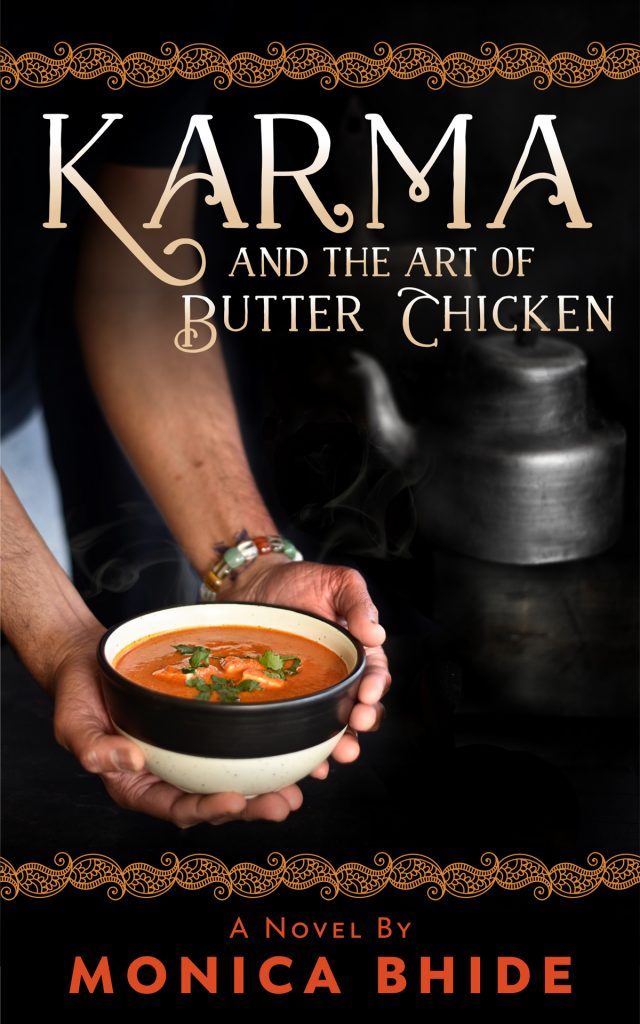Monica Bhide became fascinated by the life of the Buddha at a very young age.
“I read a lot of Jataka stories and loved them,” the food writer tells Tricycle, referring to tales of the Buddha’s past lives. “I remember hearing a story about a man who was very angry with the Buddha and cursed him, and the Buddha simply smiled. He said that he did not react because he did not wish to ‘accept’ the anger. This story found a home in my heart.”
When Bhide started writing her first novel, she knew she wanted to incorporate into her tale the aspects of Buddhism that intrigued her as a child. Karma and the Art of Butter Chicken tells the story of Eshaan, an orphan who is raised by monks. Like the Jataka story, Eshaan works to rise above the emotions and anger he feels as he watches an ex-girlfriend seamlessly move on to new love and as he struggles to find a career. And yet he’s yet to come to terms with his troubled past.
“The book is a hero’s journey about a young man who has lost a lot in his life and who wants to make a difference in this world,” Bhide said. “But he struggles with the demons in his head.”
A gifted chef, Eshaan wants to devote his career to ensuring no one will experience the hunger he once did. He decides to enter a popular TV cooking contest in order to earn the money and fame he needs to succeed.
The author herself knows a lot about turning one’s life around to pursue a dream. Twelve years ago, she quit her job in engineering to pursue her passion for food writing. “I wanted to write fiction, but I fell into food writing,” Bhide said. Since making that dramatic career jump, she’s published four books about cooking and food and released a short story collection in 2014.
In creating Eshaan’s unique backstory, Bhide was also inspired by the memories of the Tibetan monasteries she would regularly pass as a child in New Delhi. A cousin who went to school across from a teaching monastery would often share stories about the monks’ kindness. “It seemed to us as if they had something magical in their lives,” Bhide recalled.
Visiting some of the monasteries in Majnu-ka-tilla, a Tibetan enclave in New Delhi, to observe and absorb the details of daily life turned out to be one of the most interesting parts of Bhide’s research process, even though she was initially hesitant about being viewed as an outsider. “I needed to get up nerve up to ask one monk questions for my book. Finally, I approached him and asked him if I could talk to him about my novel,” she said. “He said yes. Then I asked, “Can I make an appointment for this?” He laughed so hard and said, ‘I am a monk! You do not need an appointment. Come sit down here and ask me what you need. And I will try to help you.’ And he did. I still smile when I think of that.”
As readers can tell from the title of the book, karma and its impact on Eshaan’s journey is central to Bhide’s novel. The monks who raised him would often refer to Eshaan as “the child of good karma,” and it is no spoiler to say that Eshaan slowly begins to overcome his struggles as he addresses the secrets of his past.
“As I understand the concept of karma, it is not just that you do good and good comes to you,” Bhide explained. “It is that the good that you do needs to have pure feelings of compassion and giving behind it. The monks in the book knew that about Eshaan—that his good karma came from a really compassionate heart. And they knew this would always come back to him.”